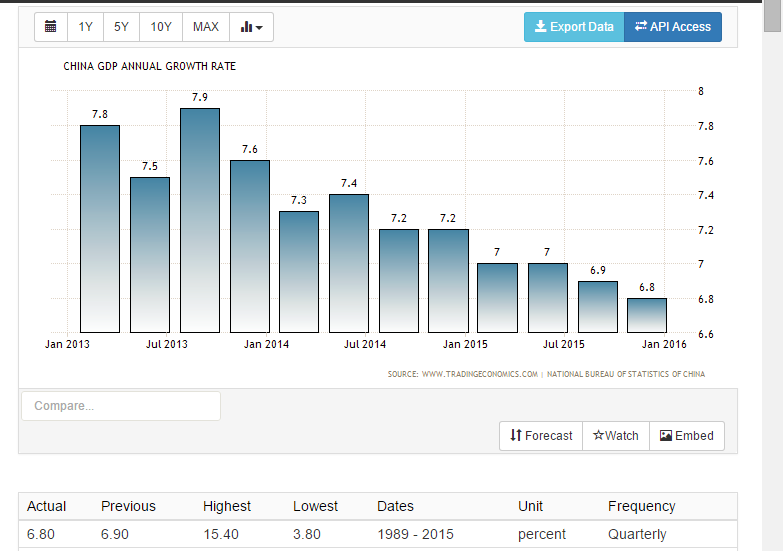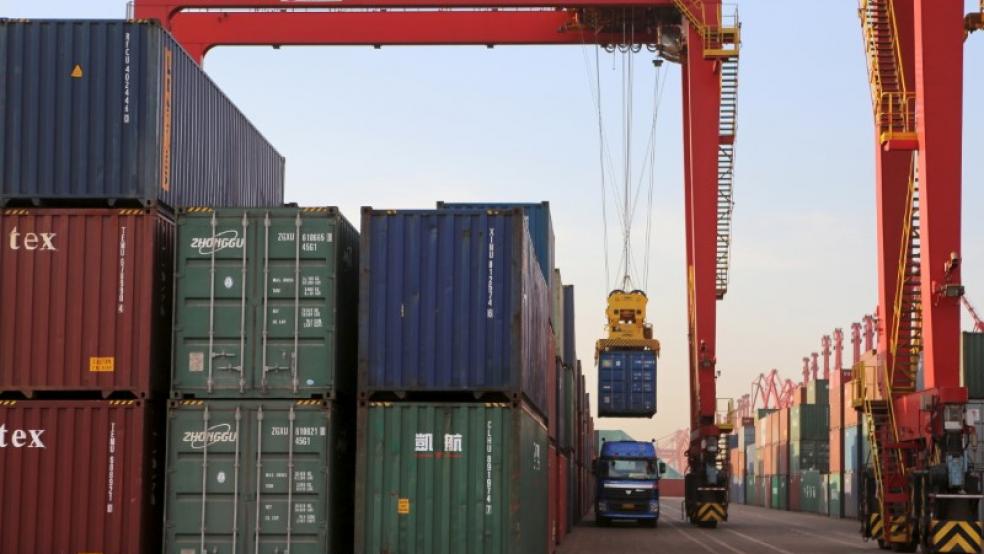China’s new annual economic report, which Premier Li Keqiang unveiled to the National People’s Congress over the weekend, recognizes the problems associated with China’s fundamental transformation—notably the danger of unmanageable debt spread through the system—but lands on the side of optimism.
Li forecasts GDP growth of 6.5 percent to 7 percent this year—an acknowledgement that China’s in a new developmental phase—and the budget deficit expands by a cautious 3 percent over last year. Inflation holds steady and job creation is sufficient to keep unemployment where it is. The growth band, Li added, should prove sustainable through 2020.
Related: Is the US Facing a ‘Fighter Gap’ With China and Russia?
Onward, comrades, with President Xi Jinping’s ambitious market-reform program. That’s Li’s core position. “Problems and risks that have been building up over the years are becoming more evident,” the premier said in his lengthy speech. “But there is no difficulty we cannot get beyond.”
I have no trouble with either of these observations. I have plenty with prevalent responses in news reports, on opinion pages, and from the securities firms. These lie somewhere between (1) Beijing’s flinching, (2) the Chinese still don’t grasp the gravity of their problems, and (3) Li’s cheerleading with out-of-touch forecasts that are far too sunny.

The problem is the markets can’t read China very well. They overreact in consequence, and then they over-commit to defending the overreaction. The media, largely, simply reflect this—which is only part of what they’re supposed to do.
“It continues to strike me how some of these people who should know better are very far from up to speed on the world's second-largest, fastest-growing major economy,” Kenneth S. Courtis, chairman of Starfort Holdings wrote the other day. “This is la crème de la crème of the global economic and financial elite, and we still hear stuff that even Donald Trump would be embarrassed to say.”
Related: Emerging Markets Sink Into Post-Boom Soul Searching
That remark arrived just as the Group of 20 meeting in Shanghai wrapped up the week prior to Li’s speech. Since the context is pertinent to the China question, let’s add the G-20 gathering to the picture.
As everyone now seems to agree, we’re watching a global slowdown that’s either durable and secular—as Martin Wolf just argued in the Financial Times—or we’re at risk of tipping into another cyclical recession. Not brilliant either way, of course.
“Behind this is a simple reality,” Wolf writes. “The global savings glut—the tendency for desired savings to rise more than desired investment—is growing and so the ‘chronic demand deficiency syndrome’ is worsening.” Wolf quotes that last phrase from the OECD’s latest forecasts.
Companies aren’t investing because people aren’t buying. I would add this: People aren’t buying because prevalent economic policies—not to mention ideologies—leave too many people around the world too uncertain, too broke, too indebted, or all three to do so.
Related: Emerging Markets Lead Stocks Higher As Commodities Rise
Here’s the real and present problem: The two phases of central bank-centered policy—lower interest rates and monetary easing—are maxed out. The alternative is fiscal stimulus, which begets two corollary problems.
One, the emerging market economies can’t afford much stimulus. Li Keqiang just said so as he unwrapped China’s 2016 economic strategy. Two, fiscal stimulus strategies are unavailable to the nations that can afford them because to propose one is politically off-limits for the moment.
Wolf, citing Ray Dalio, founder of the hedge fund Bridgewater, suggests a third phase of monetary strategy: “‘Monetary policy 3’ directly targeted at encouraging spending.” Milton Friedman used to call these “helicopter drops,” Wolf reminds us—direct infusions of cash where they’ll be most effective.
This is fiscal stimulus with a new name for the sake of ideological cover. I can see time-consuming political warfare in any such policy—who is funded and why?—and time becomes of the essence in the current global environment.
Among the developing economies, there are glimmers of good news. Antoine van Agtmael, who gave us the term “emerging markets” in the 1980s, now argues that they’re re-emerging, having found the bottom at last. Not coincidentally, there are also signs that commodity markets are bouncing off the floor. Inventories are down and big consumers—i.e., the Chinese—are coming back into some markets.
There’s a big “but” here, and it’s this:
Related: Funds Call Emerging Market Currency Turn Again
In The Smartest Places on Earth, van Agtmael asserts that developing nations aren’t going to prove the global growth drivers they were long expected to be. The key lies in reading the acceleration of technological change.
One, labor inputs will prove less decisive as a comparative advantage. Two, and counter-intuitively, the new growth leaders will be what we used to call the Rust Belt economies, where cultures of innovation take root in all those splendid old grease-and-oil factories once given up for dead.
In the meantime, the policy planners in the advanced nations really do need a reboot—George Osborne, Britain’s Chancellor of the Exchequer, being Exhibit A. Osborne will present his new budget to parliament March 16, and as you may have noticed, Britons are outraged already.
Osborne is sticking to his target of a budget surplus by the 2019-20 fiscal year, and seems committed to doing everything necessary to reach it.
Enough already with the austerity theme—in Britain and elsewhere. It’s hopelessly old hat and prevents us from doing what the global economy plainly needs doing. Now’s the time to—Guess what—borrow and spend.






